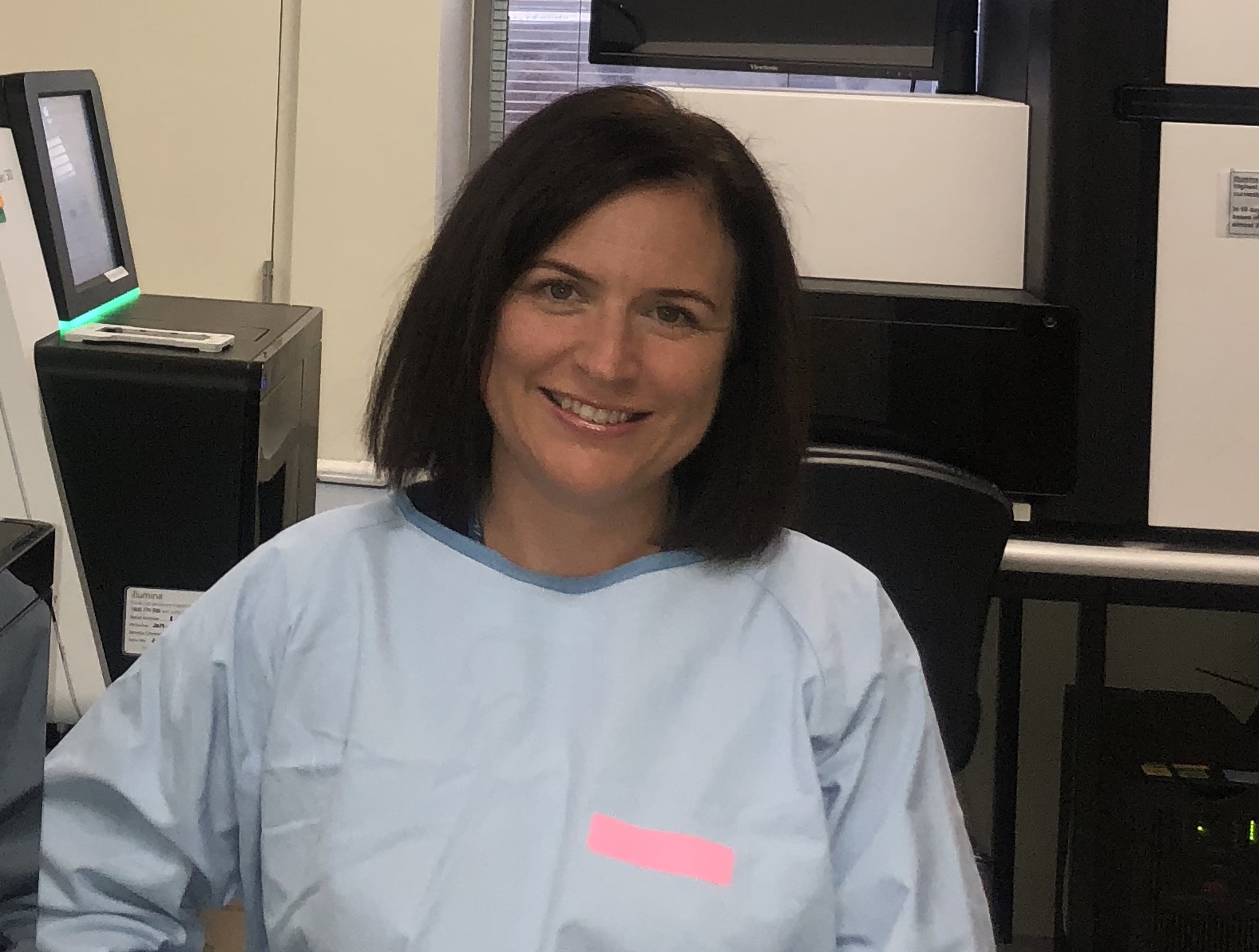First ‘next generation’ genomic test available in six months

Australian patient outcomes in the rapidly changing fields of genomic testing and precision medicine, where a therapy targets a particular genetic mutation, has been accelerated by Leukaemia Foundation funding.
Within six months, an accredited diagnostic gene test, that sequences 38 genes at the same time, will be available across Australia for people with a range of different myeloid neoplasms.
And this time next year, clinicians also will have access to a second test, for myeloma, with a third cutting-edge test for lymphoid malignancies well into development at that stage.
Each test will use a patient’s bone marrow sample to screen a disease-specific panel of gene mutations for diagnostic purposes and to track treatment.
The single test for the myeloma gene panel will test 15 genes including deletion of TP53 – the major prognostic indicator – and mutations that predict response to standard of care immunomodulatory agents, as well as recently identified mutations for which targeted therapies are available.
“We’ve designed what we think is the next generation of genomic tests and they can be updated as genetic discoveries continue,” said Dr Anna Brown, Head, Molecular Oncology in the Department of Genetics and Molecular Pathology at SA Pathology (Adelaide).
She is on the SA Genomics Haematology Malignancies Node development team which recently received a $200,000 grant from the Leukaemia Foundation; an investment that enables the appointment of a medical scientist and bioinformatician for two years.
“Having these dedicated staff members will accelerate our progress and take these tests all the way from a research finding and concept, through development and the rigorous NATA* accreditation pipeline, to a standard of care diagnostic test,” said Dr Brown.
The test results will be delivered within a week to clinicians along with clinical guidelines for target therapies, to help them choose the best therapy in the care of their patients.
“Our ability to sequence and understand the mutations in large numbers of genes, using current technology, has revolutionised blood cancer diagnosis,” said Dr Brown.
“We can see things in tumours we couldn’t see even a few years ago.”
Treatments can be designed that target a particular aspect of a cancer.
Dr Brown said researchers are identifying treatments that will attack or target a specific type of gene mutation and every targeted therapy will be different, depending on the mutation.
“The same gene mutations occur in a range of different types of cancer and rather than separating cancers into different types, based on the organ they affect, we can separate out cancers using a genetic classification based on the mutations they have.
“That means the way we treat cancer can be approached differently and precision medicine is changing the way we do clinical trials,” said Dr Brown.
“For example, recent studies have shown gene mutations in myeloma that are the same as gene mutations in leukaemias and solid tumours, like melanoma.
“As they all have the mutation that matches the therapy, you can trial it.
“These are called basket trials, where entry for a trial is based on a genomic test that shows you have the mutation that matches the therapy.
“It’s the beginning of this still, but groups in the U.S. have been getting big numbers [on basket trials] and are showing that the targeted therapies give you a better outcome than whatever the standard of care is,” explained Dr Brown.
“Our group is focused on setting up systems where people can access those new cutting-edge targeted therapies though a clinical trial and one of our jobs now is making sure we get clinical trials coming to Australia.”
Precision medicine also provides more treatment options, especially in the relapsed setting, where the identification of mutations could mean there are potentially more therapies to try.
“Patients who progress on therapy have the poorest outcomes,” said Dr Brown.
“A lot of trials are looking at this group of patients and are finding good responses from those on new targeted therapies, which is really exciting.”
“And another aspect of precision oncology is being more precise in knowing who is and who isn’t going to respond to a particular therapy.
“We’re really grateful to the Leukaemia Foundation for partnering with us and the timing is really good,” said Dr Brown.
“The extra resources will spur on a lot of extra activity we wouldn’t have been able to do it without them.
“This grant is covering more than just developing the test technology. It’s developing the entire pipeline and having dedicated staff members to do this work for the next couple of years will accelerate our progress.
“I think we will reach a stage, and I don’t know how far away that is… not too far… where everybody will have genomic testing of their tumour,” said Dr Brown.
* National Association of Testing Authorities (Australia).
This article was published in the April 2019 issue of Myeloma News.
Last updated on August 4th, 2021
Developed by the Leukaemia Foundation in consultation with people living with a blood cancer, Leukaemia Foundation support staff, haematology nursing staff and/or Australian clinical haematologists. This content is provided for information purposes only and we urge you to always seek advice from a registered health care professional for diagnosis, treatment and answers to your medical questions, including the suitability of a particular therapy, service, product or treatment in your circumstances. The Leukaemia Foundation shall not bear any liability for any person relying on the materials contained on this website.